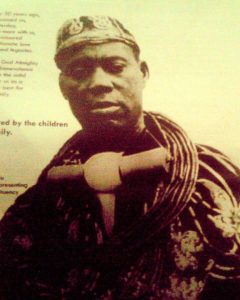
History possesses an inherent capacity to unveil the truths surrounding various societal norms, particularly with respect to the conferral of chieftaincy titles upon female descendants. This issue prompts one to reflect on the definition of a female descendant within this context.
To illustrate, we can consider the case of the esteemed Ologbotsere Eyimisanren, who presided as an Ologbotsere over warri kingdom from 1770 to 1794. Eyimisanren was, in fact, the grandson of the third Ologbotsere, Ojoye Aiguinode. It is noteworthy that Ojoye Aiguinode did not father any male heirs; instead, his lineage consisted solely of female children. One of such daughter entered into matrimony with Udefi Obaloye, leading to the birth of male offspring. Therefore, Eyimisanren himself emerged from this union, eventually ascending to the esteemed position of Ologbotsere.
This historical narrative serves to highlight that all individuals who claim descent from Ologbotsere Eyimisanren are, at their root, female descendants, intricately woven into the lineage of Ologbotsere. Consequently, they possess neither the authority nor the voice to influence decisions regarding the bestowal of chieftaincy titles in contemporary society.
It is imperative to address the genealogical complexities and the historical significance surrounding the lineage of the Ologbotsere Eyinmisanren descendants. This group, both those who are deceased as well as the living, possesses a paternal lineage connected to the Obaloye family. Hence, it stands to reason that the rightful claims to the Obaloye stool, an esteemed title of leadership, should be contested by them rather than asserting a maternal entitlement to an alternative title.
The assertion of maternal claims, while valid, appears to detract from the legitimacy of their paternal heritage, which encases their identity within the broader context of Obaloye ancestry. Furthermore, it seems inappropriate for this lineage to use paternal assertions as a means to infringe upon the rights of other claimants. Such actions not only cloud the interpretation of inheritance within the community but also neglect the respect owed to both maternal and paternal lines. Therefore, a clarion call for proper and equitable recognition of lineage seems essential, ensuring that all rightful descendants contend for titles that accurately reflect their ancestral heritage.
Peoplesmind
